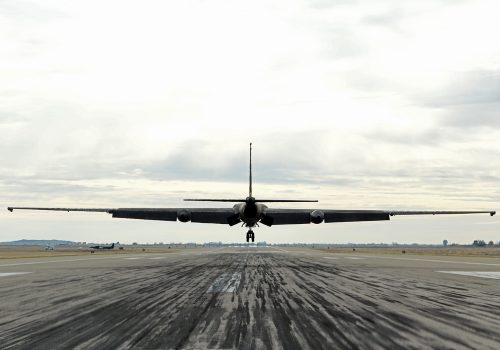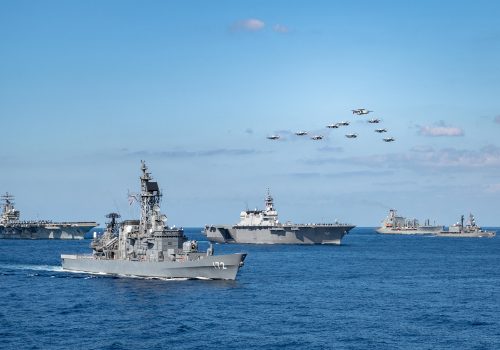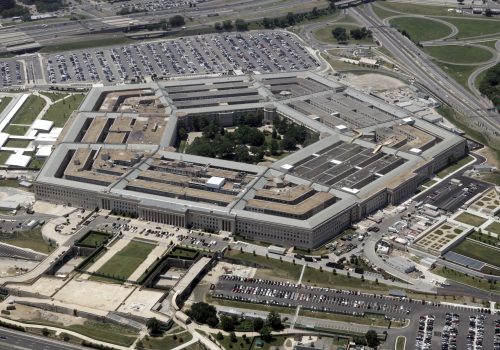Starling interviewed by Government Matters on the next National Defense Strategy

On February 11, Clementine Starling, deputy director of Forward Defense (FD) and resident fellow of the Transatlantic Security Initiative (TSI) at the Atlantic Council’s Scowcroft Center for Strategy and Security, was interviewed by Government Matters on the next National Defense Strategy (NDS). The interview focused on the insights and recommendations of Starling’s and LtCol Matthew Crouch‘s latest op-ed on how the United States should regain its competitive advantage in the 2022 NDS. In the interview, Starling discussed the imperative to broaden the Department of Defense’s view of great-power competition, to include note only high-end, high-tech warfare, but also low-end hybrid threats below the threshold of conventional warfare. Specifically, a major pillar of this approach would involve a whole-of-government framework for multi-spectrum competition, in which the Departments of Defense, State, Homeland Security, and others would more clearly define their roles and resources to address different types of threats. Starling also addressed the importance of allies and partners in the Indo-Pacific region for US defense goals, and argued that the United States needs to shore up existing alliances, turn partners like India and Indonesia into new allies, and convince them to better work with each other to counter China.
The reality is [that] there is no longer such a distinction between international threats and threats to the homeland. They bleed together… So it requires our government agencies to respond collectively.
Read Starling’s foundational op-ed and related FD commentary on the next NDS:
For more on the next NDS, check out FD’s latest project:
About Forward Defense

Forward Defense, housed within the Scowcroft Center for Strategy and Security, generates ideas and connects stakeholders in the defense ecosystem to promote an enduring military advantage for the United States, its allies, and partners. Our work identifies the defense strategies, capabilities, and resources the United States needs to deter and, if necessary, prevail in future conflict.
Image: Photo by Matt Artz on Unsplash




